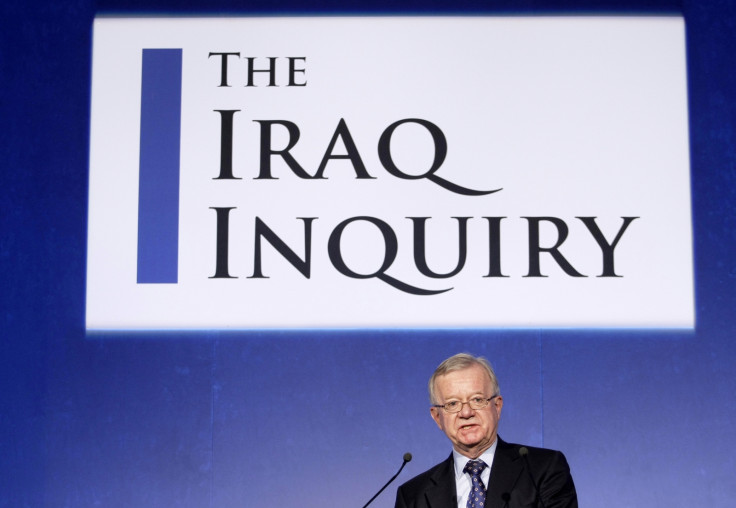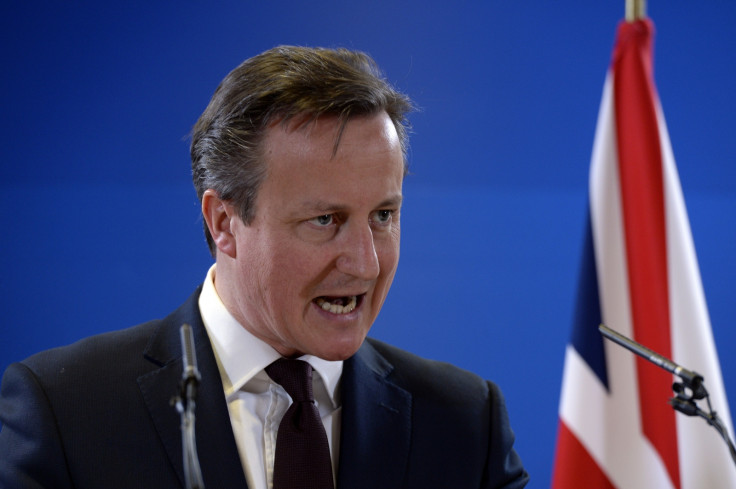Iraq Inquiry: Sir John Chilcot 'repeatedly refused' extra resources for publication of report

The head of a long-awaited £10m ($15.5m, €14m) investigation into the UK's role in the Iraq war "repeatedly" turned down the offer of extra resources from the civil service, according to Sir Jeremy Heywood.
The cabinet secretary and head of the home civil service told a group of MPs that Sir John Chilcot refused his offer of additional legal help on the behalf of the prime minister.
"We have repeatedly offered the inquiry extra resources, they say they don't need them – they are doing it as fast as they can," Heywood said.
"We have repeatedly offered the inquiry extra resources, they say they don't need them – they are doing it as fast as they can.
But he stressed that Chilcot will complete the report "as soon as he possibly can".
Heywood, who was giving evidence to the Public Administration and Constitutional Affairs Committee today (21 July), added: "He is as aware as everybody else is about the importance of getting this done and quickly."
He was pressed on the issue by Newport West MP Paul Flynn. The Labour politician argued that it was important that MPs were informed of the inquiry's conclusions as talks of a British intervention in Syria and Iraq ramped up.
"Is there any possible influence you can have to accelerate the publication of that inquiry? Or are you washing your hands of it altogether?" Flynn asked.
Heywood said he was not "washing his hands" of the report and stressed that the investigation was independent of the government, while revealing that he had offered Chilcot extra help.
Cameron pushes Chilcot

Chilcot has faced increasing pressure from Number 10 to publish the inquiry's findings. Prime minister David Cameron said in June that he was "fast losing patience" with delays to the process after Chilcot said he could not provide a timetable of publication.
"Since the establishment of the inquiry nearly six years ago, the British public, in particular those who served in Iraq or lost loved ones in the conflict, have been awaiting the results of your work," Cameron wrote.
"They, and I, had hoped for the publication of your report by now and we are fast losing patience."
The inquiry, which interviewed former prime ministers Tony Blair and Gordon Brown, was opened in 2009 and was expected to report its findings three years ago.
"The issues the inquiry is considering are complex and controversial. To ensure that the conclusions we reach are well-founded it is essential that our approach should be rigorous and comprehensive," he said.
"We are conscious of our responsibility – to the public and to all those whose lives have been deeply affected by the events we are examining – to discharge our duty thoroughly, impartially and fairly."
A government spokesman said: "The government continues to support the inquiry, without compromising its independence, so that it can complete its work as quickly as possible, and do justice to the gravity of the issues it is examining.
"The inquiry now needs to be allowed to complete the Maxwellisation process and Chilcot has assured the prime minister that he will provide a timetable for completion of his report once that process is complete."
A spokesperson for the Inquiry said: "Sir John and Sir Jeremy discussed the additional assistance the Inquiry will wish to call upon in its closing stages and agreed some steps that can be taken now to assist the Inquiry in its work."
© Copyright IBTimes 2025. All rights reserved.






















